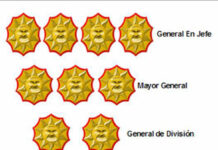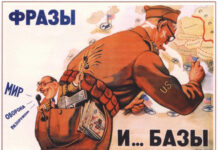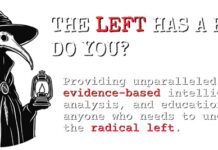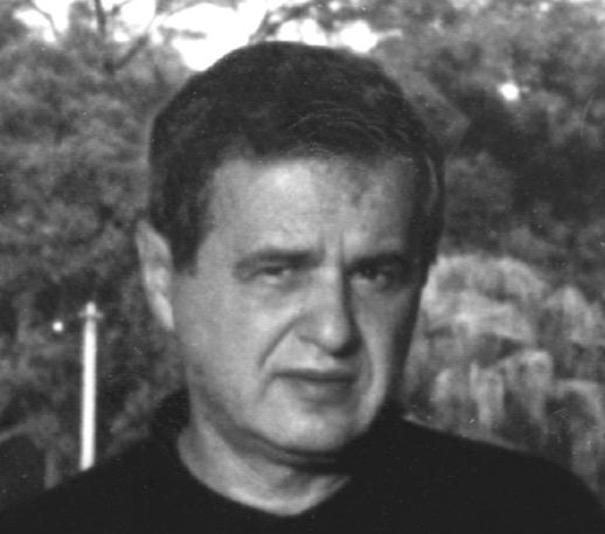
Dusko Doder’s case has ominous reverberations in the era of Cold War 2.0
Late one February night in 1984, Dusko Doder, The Washington Post’s Soviet correspondent, noticed hundreds of lights blazing at the Soviet Defense Ministry and KGB offices in Moscow.
He surmised that the Soviet leader, Yuri Andropov, who had been ill for a while, had died.
Highly unusual was the fact that, on that night, Soviet television unexpectedly changed its scheduled programming to classical music.
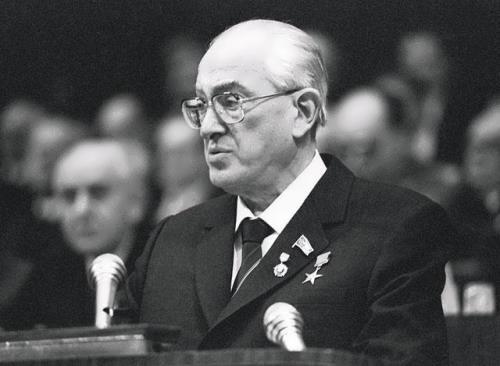
Doder’s suspicions were correct; Andropov had indeed died. He reported the scoop in The Washington Post—before the CIA had got wind of the story, which infuriated them as it made them look incompetent.
How could a regular journalist know something of this magnitude before them!
To add insult to injury, Doder’s story noted “concern and some finger-pointing within the U.S. government over an apparent lack of alertness by the U.S. Embassy in Moscow and other intelligence monitors to such a crucial development [Andropoov’s death].”
So what did the CIA do? They decided to take retribution on Doder, planting a story with a friendly journalist suggesting that Doder had been paid $1,000 by the KGB and was beholden to the Soviet spy agency.
In his memoir, then Washington Post editor Ben Bradlee wrote that “Doder wrote something that embarrassed the CIA, and when the agency thought they saw a chance to get even, they took their shot.”[1]
The journalist who smeared Doder, Jay Peterzell, wrote for Time magazine, a part of the Henry Luce empire which had long-standing ties to the CIA.


Time’s principal reporter and editor on the Soviet Union at the time was Strobe Talbott, Bill Clinton’s Oxford roommate and a member of Yale’s Skull and Bones secret society, who came from an old CIA family.
While at Oxford, Talbott had been recruited by the Agency with Clinton to smuggle Nikita Khrushchev’s diaries out of the Soviet Union and to translate them—a coup for the CIA in the Cold War since Khrushchev had denounced the crimes of Joseph Stalin.[2]
Talbott was later appointed by President Clinton as the State Department’s point man for his Russia policy and became one of the godfathers of the Russia Gate scandal that drove forward Cold War 2.0.
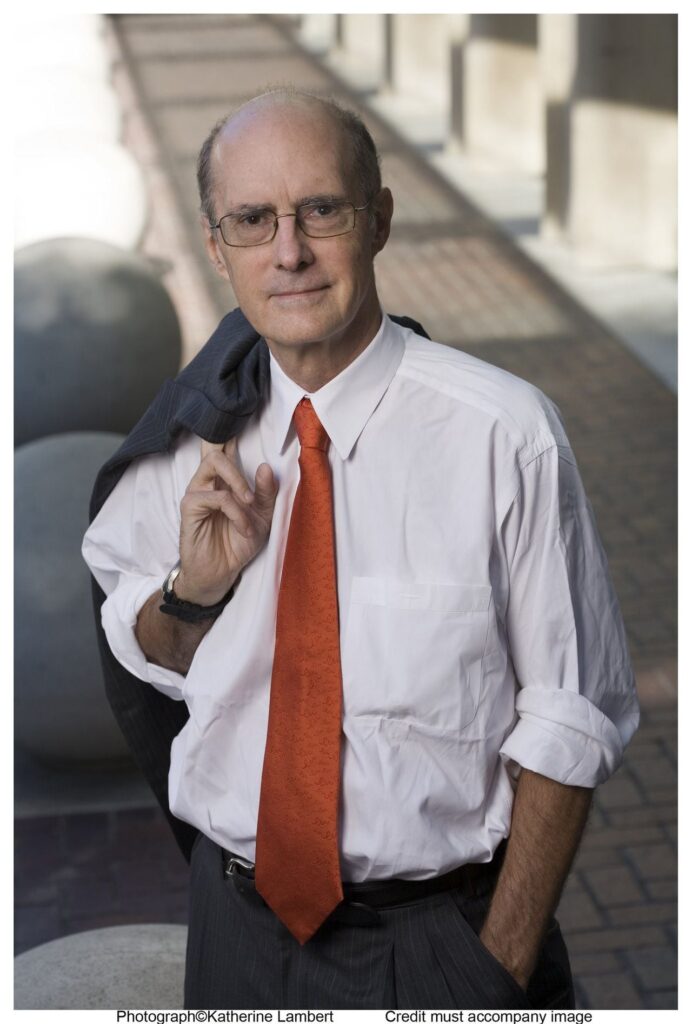
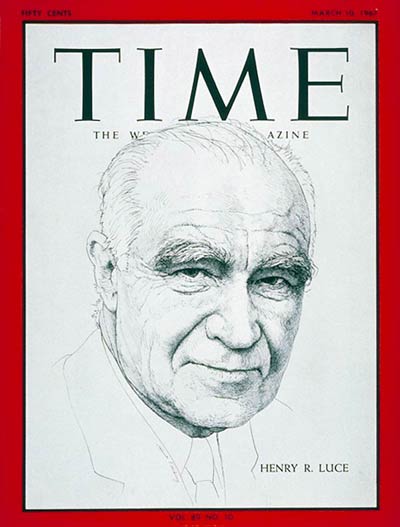
Peterzell’s story drew on the false testimony of KGB defector Vitaly Yurchenko, who told American officials that Doder had taken payment from the KGB.
Doder was interrogated by the FBI, who told him that “you’ve been an outstanding correspondent because you had a corrupt relationship with the KGB…Since the KGB controls everything, they were feeding you information to make you look good.”
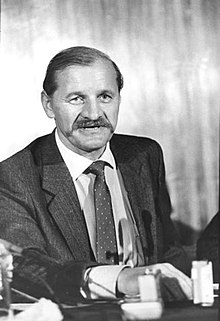
After Peterzell’s story was published, Doder sued Time magazine for libel and won his case, as there was no credible evidence to ever emerge that he took any money from the KGB.
After the judge issued his ruling in August 1986, Time offered sincere regret and apologies in court and agreed to pay Doder $262,000 and to cover his lawyers’ fees and costs.[3]
However, Doder had suffered significant damage to his career and said that he had been “robbed of his dignity and prestige” as a result of the false accusations directed against him.
Doder died on September 10. He is remembered fondly as a highly professional reporter with an indefatigable work ethic who published several books, including The Yugoslavs (1978), Shadows and Whispers: Power Politics Inside the Kremlin from Brezhnev to Gorbachev (1986), and The Inconvenient Journalist: A Memoir (Ithaca: Cornell University Press, 2021).[4]
Doder’s story remains significant because it fit the pattern during the Cold War by which the CIA tried to smear journalists and investigators who were trying to expose corrupt Agency practices or otherwise made the Agency look bad.
One journalist researching the CIA’s complicity in the assassination of JFK, Dorothy Kilgallen, was even murdered—almost certainly by a man who had worked for the CIA in Guatemala during Operation PBSuccess (which overthrew left-leaning President Jacobo Árbenz).
Doder’s story especially reverberates today amidst a renewed Cold War environment.
Magazines like Time continue to promote stories of Russian interference in U.S. politics and media—like Peterzell’s story—based on dubious evidence and yellow journalism standards.
Whistleblowers and journalists who cast critical light on U.S. foreign policy or who fall in the crosshairs of the CIA are continuously susceptible to being accused of being Russian agents and face career suicide and potential legal trouble.
Witness the attempts to censor Russian TV and the case of Scott Ritter, a former Marine Corps intelligence officer, whose critical writings, podcasts and speeches about the Ukraine conflict resulted in his blacklisting in the media, routine smears being directed against him, and his home being raided by the FBI.

Adam Nossiter, “Dusko Doder, Cold War Journalist Falsely Tied to K.G.B., Dies at 87,” The New York Times, September 21, 2024, B11. ↑
See Jeremy Kuzmarov, Warmonger: How Clinton’s Malign Foreign Policy Launched the US Trajectory from Bush II to Biden (Atlanta: Clarity Press, 2023). ↑
Time issued a statement that said the magazine “had no evidence, and did not mean to suggest, that the KGB exercised control over Doder’s reporting from Moscow.” ↑
Nossiter, “Dusko Doder, Cold War Journalist Falsely Tied to K.G.B., Dies at 87.” Born in Sarejevo, Doder obtained a Master’s degree in journalism and international relations from Columbia University and worked for The New York Times, U.S. News & World Report, and Associated Press. ↑
CovertAction Magazine is made possible by subscriptions, orders and donations from readers like you.
Blow the Whistle on U.S. Imperialism
Click the whistle and donate
When you donate to CovertAction Magazine, you are supporting investigative journalism. Your contributions go directly to supporting the development, production, editing, and dissemination of the Magazine.
CovertAction Magazine does not receive corporate or government sponsorship. Yet, we hold a steadfast commitment to providing compensation for writers, editorial and technical support. Your support helps facilitate this compensation as well as increase the caliber of this work.
Please make a donation by clicking on the donate logo above and enter the amount and your credit or debit card information.
CovertAction Institute, Inc. (CAI) is a 501(c)(3) non-profit organization and your gift is tax-deductible for federal income purposes. CAI’s tax-exempt ID number is 87-2461683.
We sincerely thank you for your support.
Disclaimer: The contents of this article are the sole responsibility of the author(s). CovertAction Institute, Inc. (CAI), including its Board of Directors (BD), Editorial Board (EB), Advisory Board (AB), staff, volunteers and its projects (including CovertAction Magazine) are not responsible for any inaccurate or incorrect statement in this article. This article also does not necessarily represent the views the BD, the EB, the AB, staff, volunteers, or any members of its projects.
Differing viewpoints: CAM publishes articles with differing viewpoints in an effort to nurture vibrant debate and thoughtful critical analysis. Feel free to comment on the articles in the comment section and/or send your letters to the Editors, which we will publish in the Letters column.
Copyrighted Material: This web site may contain copyrighted material the use of which has not always been specifically authorized by the copyright owner. As a not-for-profit charitable organization incorporated in the State of New York, we are making such material available in an effort to advance the understanding of humanity’s problems and hopefully to help find solutions for those problems. We believe this constitutes a ‘fair use’ of any such copyrighted material as provided for in section 107 of the US Copyright Law. You can read more about ‘fair use’ and US Copyright Law at the Legal Information Institute of Cornell Law School.
Republishing: CovertAction Magazine (CAM) grants permission to cross-post CAM articles on not-for-profit community internet sites as long as the source is acknowledged together with a hyperlink to the original CovertAction Magazine article. Also, kindly let us know at info@CovertActionMagazine.com. For publication of CAM articles in print or other forms including commercial internet sites, contact: info@CovertActionMagazine.com.
By using this site, you agree to these terms above.
About the Author

Jeremy Kuzmarov holds a Ph.D. in American history from Brandeis University and has taught at numerous colleges across the United States. He is regularly sought out as an expert on U.S. history and politics for radio and TV programs and co-hosts a radio show on New York Public Radio and on Progressive Radio News Network called “Uncontrolled Opposition.”
He is Managing Editor of CovertAction Magazine and is the author of six books on U.S. foreign policy, including Obama’s Unending Wars (Clarity Press, 2019), The Russians Are Coming, Again, with John Marciano (Monthly Review Press, 2018), Warmonger. How Clinton’s Malign Foreign Policy Launched the U.S. Trajectory From Bush II to Biden (Clarity Press, 2023); and with Dan Kovalik, Syria: Anatomy of Regime Change (Baraka Books, 2025).
Besides these books, Kuzmarov has published hundreds of articles and contributed to numerous edited volumes, including one in the prestigious Oxford History of Counterinsurgency .
He can be reached at jkuzmarov2@gmail.com and found on substack here.


